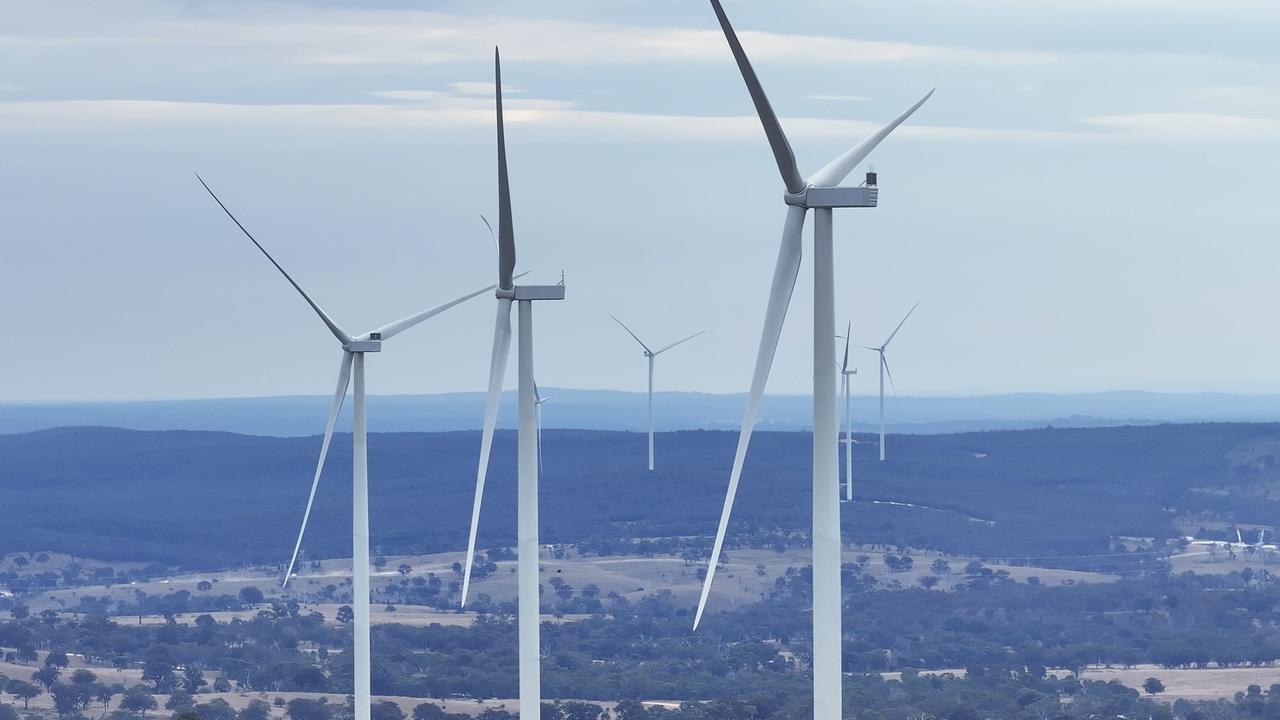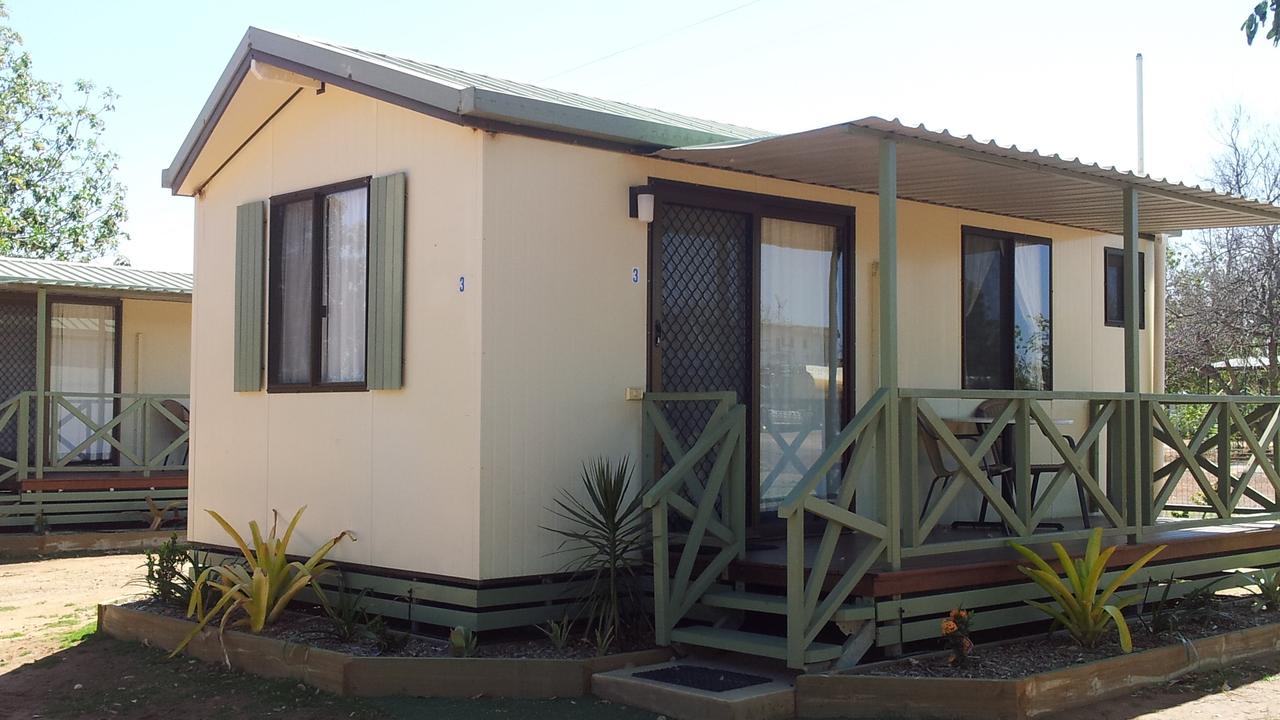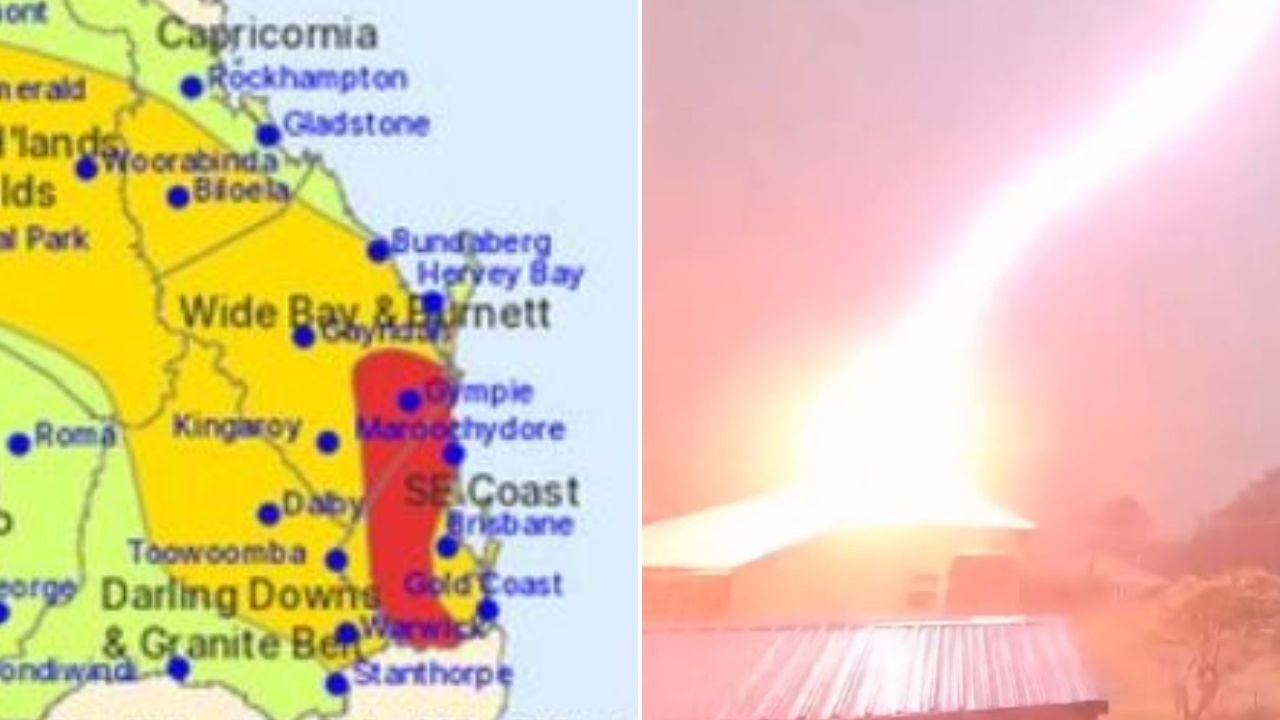Brisbane family lucky to avoid lithium battery fire after early morning find
A Brisbane family have avoided a potentially disastrous house fire from an unlikely source in the early hours of Wednesday morning.
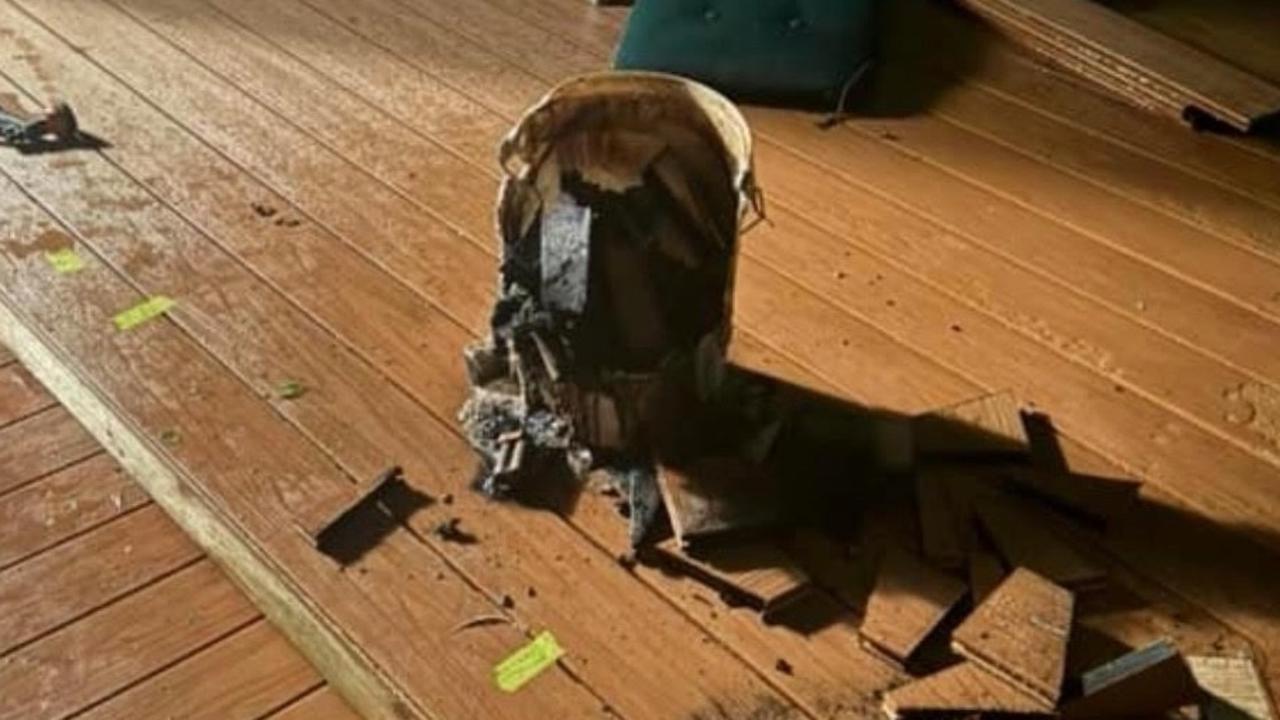
QLD News
Don't miss out on the headlines from QLD News. Followed categories will be added to My News.
A discarded drill battery accidentally dropped into a bucket by a tradie has nearly destroyed a Brisbane family home.
An anonymous poster to a Brisbane community Facebook page revealed the close call and warned of the dangers of lithium batteries.
It comes less than 24 hours after a family in Sydney were rushed to hospital after a faulty e-scooter battery sparked a house fire, leaving a man in a critical condition.
Lithium batteries have been known to cause unexpected fires, with e-scooters being blamed for some devastating housefires recently.
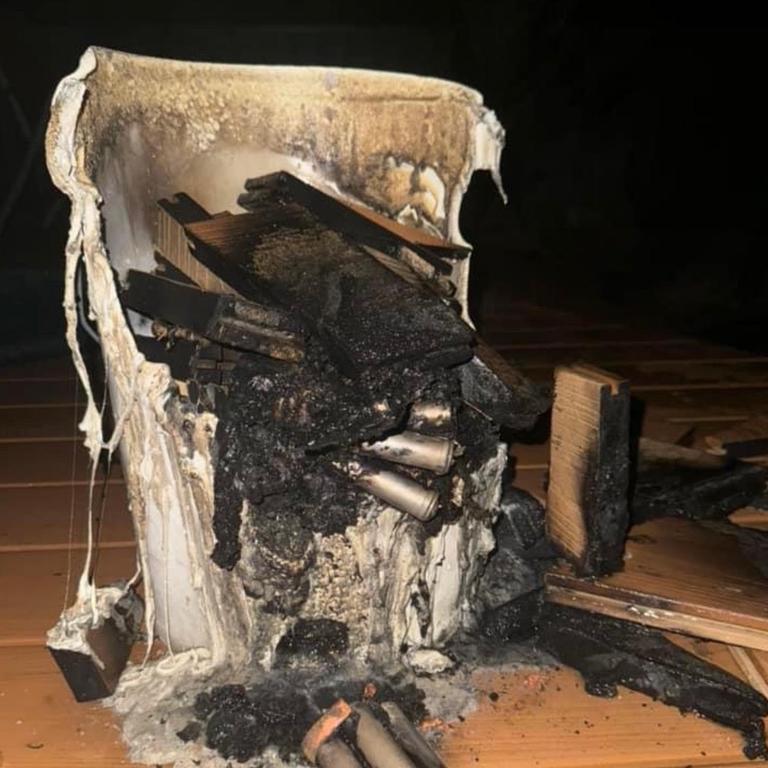
The anonymous poster said they woke in the early hours of Wednesday morning to strange noises at their property in Brisbane’s west, where a carpenter had been building a new deck.
“I woke up at 1.30am hearing strange hissing and popping sounds, and saw a that a fire had started on my deck in a bucket,” they said.
“A carpenter who was working on building the brand new deck had dropped his drill in the pool accidentally at 7.30am, so he ended up throwing his battery in this bucket of offcuts meant for the trash.
“The lithium battery had ended up sparking and creating this fire 18 hours later.”
The local fire station warned that the battery could spark and restart a fire again, telling the poster to submerge the battery in a bucket of heavily salted water for no less than 24 hours.
Lithium-ion batteries are found in most household rechargeable devices such as e-scooters, mobile phones, laptops, power tools and vacuum cleaners.
The Queensland Fire Department’s Lithium-ion battery safety website said these batteries can increase the risk of fire from incorrect charging, continuing to charge after the battery is full, using a damaged battery, tampering with or modifying the battery, or exposing the battery to heat or moisture.
“Sharing as a warning about drill batteries, as I’d always associated the dangers of lithium batteries to those who had scooters,” the poster said.
“We were extremely fortunate that it was a composite deck and not real wood, otherwise the fire would have been a lot more substantial”.
What you need to know about lithium-ion batteries >>>
What are lithium-ion batteries?
Lithium-ion batteries are rechargeable batteries that can store more energy in less space than traditional batteries. They are more lightweight and compact than other batteries.
■ are common in e-scooters, e-bikes and vapes
■ power most household rechargeable devices like mobile phones, laptops, power tools and vacuum cleaners
■ come in a variety of shapes, including round (like traditional AA batteries), flat or like a small brick
■ usually have ‘lithium-ion’, ‘Li-ion’, ‘li-po’, ‘lithium-polymer’ or ‘Li+’ printed on them.
What are the risks of rechargeable lithium-ion batteries?
The fire behaviour of rechargeable lithium-ion batteries is more volatile than traditional batteries.
If damaged, faulty or charged incorrectly, they can go into ‘thermal runaway’. This means the chemicals in the battery get hotter and hotter, and can’t cool down.
The batteries can then catch fire, explode, release toxic and flammable vapour, and reignite when the fire seems to be out.
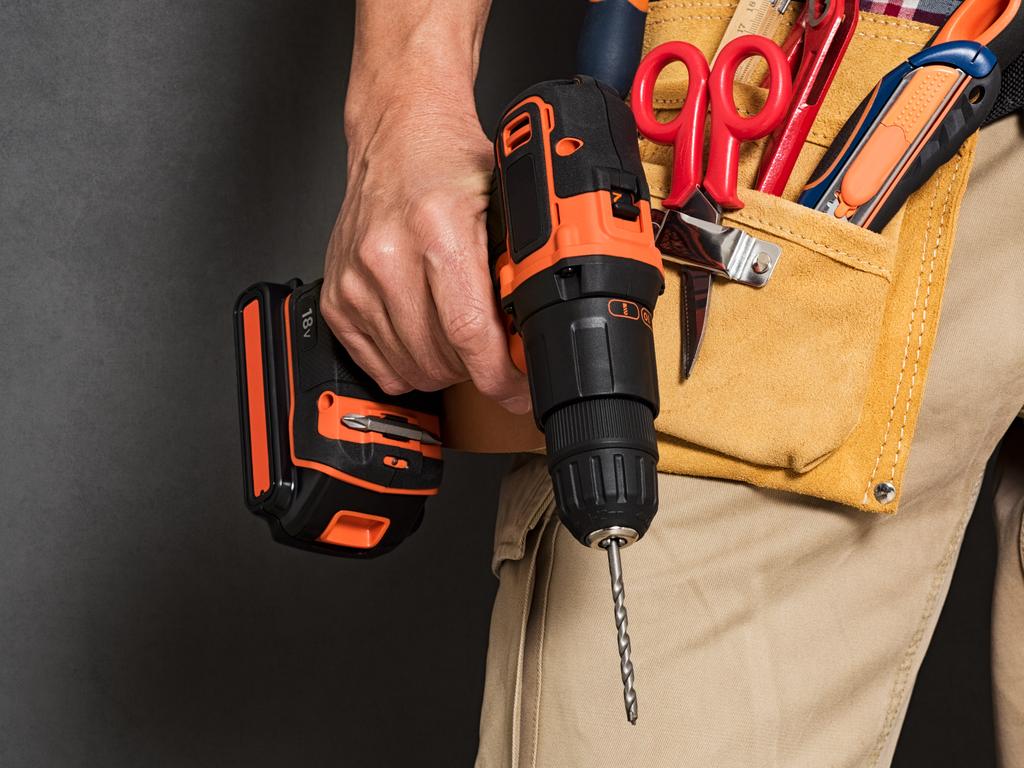
How do I dispose of lithium-ion batteries?
Damaged batteries
■ Lithium-ion batteries with any sign of damage should be treated as damaged and potentially dangerous.
■ Never dispose in general household, recycling, public or industrial bins, as damaged lithium-ion batteries can cause fires.
■ Do not put discarded, damaged lithium-ion batteries or devices in piles.
■ Wear gloves and protective clothing.
■ Be aware of the risks related to damaged lithium-ion batteries.
■ Fire or smoke-damaged batteries should be kept outside in a well-ventilated area.
■ Place leaking or damaged (but not overheated or off-gassing) batteries in a clear plastic bag or container.
■ If safe to do so, damaged lithium-ion batteries may be de-energised before disposal by placing in a large bucket filled with 10 litres of water containing 1 cup of table salt (sodium chloride) for 48 hours. This should be done outdoors in a well-ventilated area.
Undamaged batteries
■ Never dispose in general household or recycling bins, or in industrial bins.
■ Do not put discarded lithium-ion batteries or devices in piles.
■ Tape over battery terminals with electrical tape before giving them to a disposal or recycling facility.
■ Many hardware stores and supermarkets host battery recycling bins.
More information here
Source: Queensland Fire Department
Originally published as Brisbane family lucky to avoid lithium battery fire after early morning find

